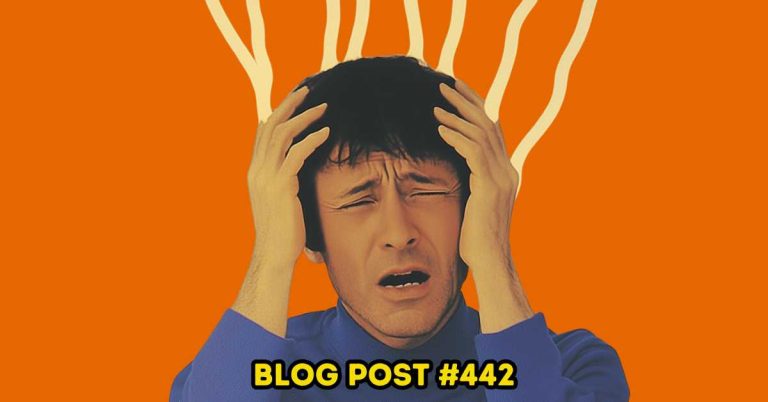
If you are on this blog, you are likely looking for tips and tricks on how to become happy (happier) or at least less sad. Well, the next distinction you MUST understand as it is something that will truly make you happy.
Specifically, you need to learn to be in the present moment as it is in this moment that you find true and unconditional happiness. Conversely, just being in your head, overthinking past mistakes and traumas or future anxieties will make you unhappy. Certainly, there could be some good memories in the past and things to look forward to in the future, but the past is gone (so at best, it is creating nostalgia, another negative emotion) and the future is still uncertain, so it can lead to daydreaming.
As such, all and any emotions are experienced in the present, so the past and future are just a result of memory or imagination, so they are experienced in the now, and often they just lead to failing to experience the present moment.
Indeed, most of our society is walking on some sort of autopilot, never giving their brain a rest, and they are just constantly switching between the present and the past, never properly experiencing anything in front of them, with some people even claiming that there is nothing good in the present moment while they don’t fully appreciate these present moments, as true and unconditional happiness only exists from moment to moment to moment in the present.
In this way, these people who claim to not enjoy the present are just suffering in the memory and imagination, being stuck in their head, rather than truly using their eyes, ears, nose, touch, and taste.
As such, in the past, we are reliving:
1) what happened
2) what could have happened
3) what should have happened
4) what didn’t happen
At the same time, the past is gone, and we can’t change it, so there is no use in obsessing about it. The best thing you can do is to use the past as a teacher, which will give you lessons about:
1) What you want to do in the future
2) What you don’t want to do in the future
3) Life lessons overall
In other words, the past provides a to-do list that we should act upon in the now by creating action-based problem-solving to-do lists.
A similar approach should exist toward the future as, for most people, it just creates anxieties and unrealistic desires that do nothing but make them feel inadequate in the present moment. All of that energy should once again be transformed into a to-do list on which you will be working.
In turn, the truly happy people relax their minds into a present moment, allow their subconscious minds to work out any an all problems, working continuously on their to do list, which allow them to work on them in the present, never obsessing about whether actually they will actually arrive at any specific destination, as life is ultimately nothing but a journey, not a destination. And while things can certainly always be better, they can also be worse, but ultimately, they are what they are, and for better or worse, we need to experience our lives, the whole life, in full.
We should not trying to skip some of its parts, such as it was the case in a movie Click (2006), where the protagonist ultimately skips through their whole life only to realize that this caused them regrets:
And the tool that will help you to be more present moment-focused is meditation. Actually, meditation is good for many more things, and it alone can change your life for the better in so many ways, but what it does in practice is train us to be present moment-focused.
In this way, meditation is quite easy to explain, although it can take a lifetime to master. It involves simply focusing on a part of your body, such as breathing (the most commonly chosen sensation), and just observing it without judgment. It’s important to avoid saying “it’s good, bad, or should be somehow different,” and if we get distracted, as we inevitably will, see it as a moment of learning and compassion (as opposed to another reason to kick yourself), because you were going to get distracted sooner or later (for most people, it is sooner rather than later), so we just gently come back to the practice. Ideally, we should practice for 10-15 minutes per day, but the more, the better, with some teachers recommending a minimum of 45 minutes, as this technique can completely transform your life.
You should ideally make meditation a normal part of your life, something you do regularly until it becomes an active part of your life. This means that you automatically are always doing it and you are constantly in the present moment. That’s the goal to achieve because that’s when you will see the most benefits from the practice. And while it can take a while to create this awareness, this too is part of life’s journey, not a destination.
In other words, goals are great, pursuing them actively is essential, but whether or not you achieve your goals, whether your life is practically good or bad, you should be fine with it all. All experiences are relative, so life events should never be judged as completely good or bad. Ultimately, you never have 100% control over anything in your life, except your thinking, so it’s important to accept your life and its journey regardless of where you are on the path.
Lastly, remember that “God” made you perfect (God can be of any religion, even Matrix or energy), so regardless of what you are experiencing now, you have to go through life and confront all its good parts and challenges, overcoming the latter, as it creates the greatest personal growth. So if you can solve this situation now (and future ones as well), that’s your journey, that’s what you need to do, and your current circumstances are always perfect for you, for your personal and spiritual growth. If you think otherwise, it’s because you are fighting against the current, against God’s plan, while you should be embracing it.
So, if you enjoyed the blog post, please hit the like or subscribe buttons (even though there are none, but there should be, right?). Alternatively, you can explore our other blog posts, check out our offerings, and schedule a free 30-minute call with one of our experts.
Stay in the present moment, and stay happy!














